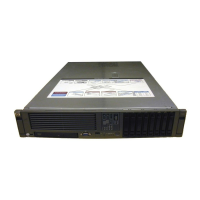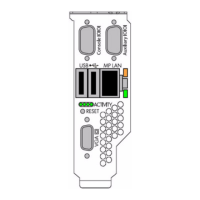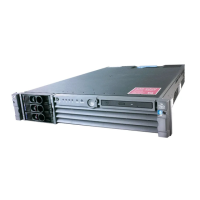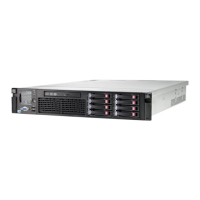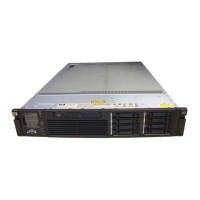controller must be loaded. This is specified in the [MassStorageDrivers] and
[OEMBootFiles] sections in the unattended file.
When you define the target disk where Windows will be installed (either setting the variable
$DISK in sstk.conf or through the SSTK menu) the hpshowdisk utility automatically retrieves
the controller type, which can be difficult to obtain if the system has a large number of disks and
controller types.
In the windows-setup.sh script, the function copy_textmode_drivers() copies the
correspondent OEM driver for the boot controller to the folder
\${MSDATA}\$win_nt$.~ls\$OEM$\TEXTMODE\. In addition, you must be sure that the
windows-setup.sh script handles the controller type being installed. If necessary, you can
add new controller models using the get_controller() function. The hpshowdisk utility
returns a unique PCI ID which specifies the controller type.
NOTE: You can obtain the controller PCI ID from the *.INF file of the OEM driver.
The get_controller() function returns the folder name where the driver files are stored. If
the controller type is not set within this function, the value retail is returned. This value directs
the setup utility to install the driver included with Windows Server 2003.
In most cases, it is sufficient to use the vendor ID to match the controller type. Also, the
$CONTROLLER variable (set in the sstk.conf file) can be used to bypass this functionality and
force the folder name where the OEM driver files are stored.
get_controller()
{
local ids=($($UTILITIES/hpshowdisk -i $selected_disk_number -p | tr ':' ' '))
if [ ${ids[0]} = "1000" ]; then
[ ${ids[1]} = "0050" ] && echo "lsi1068" && return
[ ${ids[1]} = "0054" ] && echo "lsi1068" && return
[ ${ids[1]} = "0056" ] && echo "lsi1068" && return
[ ${ids[1]} = "0058" ] && echo "lsi1068" && return
echo "retail"
return
fi
[ ${ids[0]} = "0e11" ] && echo "sa6400" && return
[ ${ids[0]} = "103c" ] && echo "saP600" && return
[ ${ids[0]} = "10df" ] && echo "emulex" && return
[ ${ids[0]} = "1077" ] && echo "qlogic4g" && return
echo "retail"
write_warning "Unknown storage device driver, using retail driver."
return
}
If an OEM diver will be used, the update_unattended_file() function automatically appends
the sections [MassStorageDrivers] and [OEMBootFiles] to the driver. The information
required to update the unattend file is obtained from the txtsetup.oem file of the controller
OEM driver. For example, for the Smart Array 6400 controller, SSTK appends the following data
to the unattend file:
[MassStorageDrivers]
"Smart Array 6i, 641, 642, 6400, 6400EM Controllers" = "OEM"
[OEMBootFiles]
cpqcisse.cat
cpqcisse.inf
cpqcisse.sys
cpqcissm.cat
cpqcissm.inf
cpqcissm.sys
40 Creating a server profile
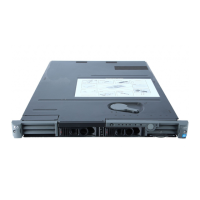
